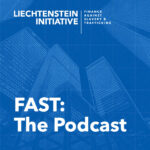The FAST Blueprint (September 2019) sets out five Goals and thirty Actions for financial sector actors to address modern slavery and human trafficking. This Insight focuses on current innovations in impact investing, in line with FAST Goal 5.
While Insight 2 focuses on how investors can engage to reduce modern slavery, this Insight focuses on how impact investors are increasingly looking to base investment decisions around the impact that capital allocation will have on modern slavery.


